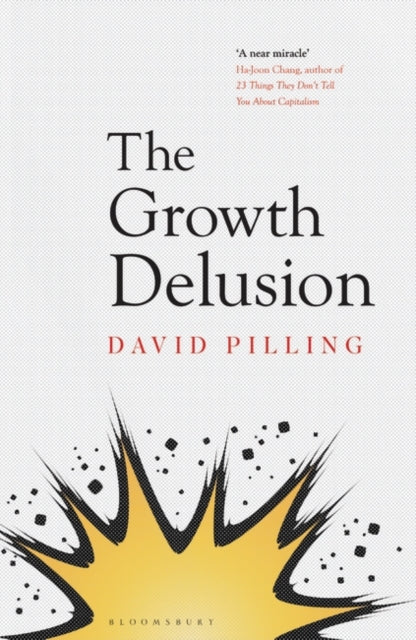
The Growth Delusion by David Pilling
As an economics journalist, I found David Pilling’s new book a “hard read”, said Philip Aldrick in The Times. Not because it’s heavy-going (the prose is “sharp and engaging”), but because of what it says about my subject. Pilling’s core contention is that gross domestic product – the measurement upon which so much economic analysis is based – is an arbitrary, oversimplified construct that we “slavishly follow” for no good reason. Moreover, the thing it’s supposedly designed to track – growth – is little more than a “cult”. Pilling, a journalist for the Financial Times, approaches growth with the zeal of the apostate. “Only in economics,” he writes, “is endless expansion seen as a virtue. In biology it is called cancer.” His book is an entertaining and well-argued survey, even if a few of the more technical chapters sag.
The founding father of GDP was the Russian émigré economist Simon Kuznets, who pioneered the idea of a “national income” in America in the 1930s, said David Smith in The Sunday Times. Against the backdrop of the Great Depression, the concept made sense: the government urgently needed a way to quantify the economy’s overall size. And yet Kuznets himself had few “illusions” about his creation, believing that it revealed little about the “welfare of a nation”. He tried, unsuccessfully, to get some forms of economic activity (including military expenditure) excluded, and acknowledged that some of his estimates were “only
well-considered guesses”.
Today, much about GDP remains “counter-intuitive”, said Felix Martin in the Financial Times. “The sale of stolen goods for cash contributes positively to GDP, for example – so theft is good for growth.” Meanwhile, housework and childcare, being unpaid, don’t show up in the figures. While some of Pilling’s arguments will be familiar to economically literate readers, at the book’s core is a properly “interesting” insight – namely, that “all concepts used in economic measurement are creatures of particular policy objectives”. First used to justify the “unprecedented fiscal activism” of the US’s New Deal, GDP was then “refined and developed by two British scholars, Richard Stone and James Meade, in order to optimise the wartime exploitation of resources in the UK”. GDP was “tailored to facilitate fiscal policy”, not to summarise national progress. Realising this should “come as a liberation”, because it leaves economists free to formulate better indices that actually measure the “well-being of the population”.
